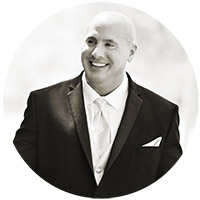We’ve all seen the news reports sweeping across our nation, the heart wrenching stories of children acting out with violence against those that they feel betrayed by. There are no words that can heal the pain of the families that have lost their loved ones because of these irrational acts of violence. While gun control discussions are necessary it is essential that we focus on what we can do as parents, teachers, and role models to help our children learn and grow emotionally. We need to teach them a better way to deal with internal and external issues early in their development. Implementing Social and Emotional Learning Programs (SEL) in primary grades may be a preventative measure against the catastrophes that we have been seeing more and more in our schools.
Social interactions have declined dramatically in the last decade. Respect and common courtesy is no longer the norm and Social Media has made it easy for people to be ‘mean’. It’s easy to be cruel behind a smartphone. Our President, celebrities, and peers take to social media to lash out and document everything that is happening in their lives – good and bad. Children are witnessing this poor behavior and mistakenly believe it is acceptable to act this way.
We spend countless hours at home and school educating our children in reading, writing, and arithmetic. But are we spending the same amount of time working on social and emotional development that in turn will ensure the children become responsible and kind people? Many school districts do “Character Counts” type programs to reward young students that are behaving. These are great and important, but perhaps our children need more than this.
SEL is the process of supplying children and adults the knowledge needed to properly display the right attitude and skills essential to understanding and managing emotions. Through SEL education during early childhood, young children will be able to set and achieve goals that will allow them to feel and show empathy for others, create and maintain meaningful relationships, and make responsible decisions for themselves. If we stress the importance of these things when they are still young, then perhaps they will be better equipped to handle life stresses when they reach puberty. Of course there is no guarantee of anything, but it is our job to give them as many tools as we can, empowering them for their future.
The Dalai Lama once stated, “It is vital that when educating our children’s brains, we do not neglect to educate their hearts.” This is an incredibly powerful statement. B. F. Skinner was a well-respected American psychologist and social philosopher. His theory of operant conditioning (1969) looked at the socialization process a growing child experiences in which lead to influence future actions. If an actual parent or parenting figure approves of a child’s behavior with encouragement and reinforcement, then the behavior will continue to grow. Thus, if the adult figure immediately disapproves of a child’s behavior and strongly verbalizes that, then the behavior is less likely to resurface.
Albert Bandura is an influential social cognitive psychologist who is regarded as one of the greatest living psychologists. He is best known for his social learning theory (1977). In it, he states that a child’s behavior is influenced greatly by observing both parents and peers and whether they get rewarded or punished for certain behaviors.
Several large-scale reviews of 317 different studies about the impact of SEL on elementary and middle school students showed that academic success was displayed by those children that were taught social and emotional skills when younger. SEL students were shown to have achieved 11 percentage points higher on achievement scores. It was said that they have an easier time focusing and relaxing at school, meaning that in the classroom they are able to learn better.
It is also shown that students who were engaged in SEL are less disruptive and aggressive in the classroom and all throughout school. These students continue to display long-term benefits into adulthood with 10 percent fewer psychological, behavioral, and substance abuse problems. Being able to handle anger and behavior at such a young age can only lead to good things later on.
There are numerous SEL programs in use across the country already, and the schools implementing these programs are seeing kids behaving better and achieving more academic success.
To support proper development your SEL program should be built around these five skills:
While you may think that these behaviors are easy to learn for a child, it can be quite the opposite. These positive skills are learned from a combination of experience, observation, and guidance. A strong SEL program with proper parent guidance at home will certainly re-enforce these skills. If you do not already have a SEL program in place at your school, perhaps it’s time to speak with administrators on getting one started.
by Ryan Crawley
